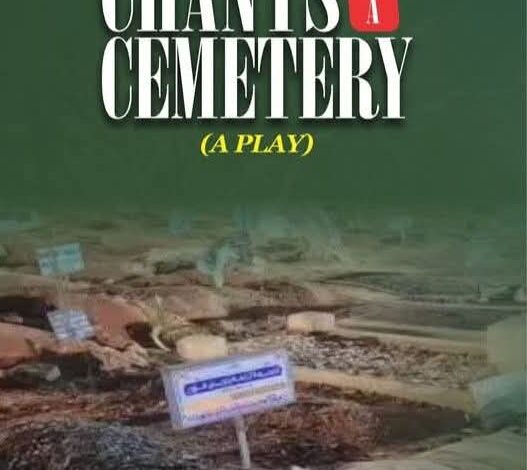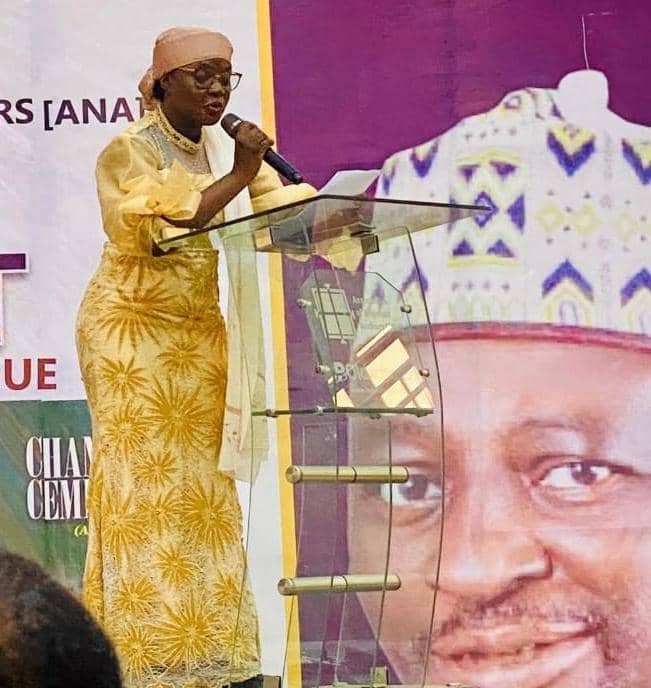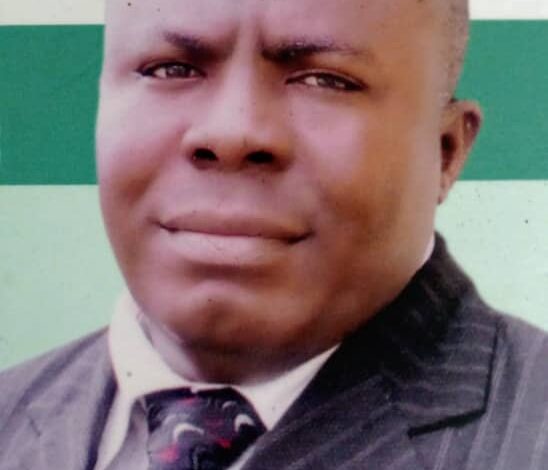Graveyard musings: Where life meets emptiness in Denja Abdullahi’s ‘Chant in a Cemetery’

By Salamatu Sule
IT is an honour to stand before you today to review one of the most significant works by a towering figure in our literary landscape, both here in Abuja and across the globe. Denja Abdullahi’s name, I dare say, needs no introduction where literature is concerned. A master of both creativity and advocacy, he has consistently gifted the world works that do more than entertain; they provoke thought, stir conscience, and echo society’s pulse with a resonance that is both necessary and profound.
Today, I will examine Abdullahi through the lens of his craft as a playwright, with a particular focus on his latest work, Chant in a Cemetery, which I refer to here as a “Play of Necessity.” Published in 2025 by NIPRI Publishers for the Orpheus Literary Foundation, this five-act play features two male characters: Baba, an elderly grave digger, and Musa, his young nephew and apprentice. The setting—a sprawling cemetery marked by mounds of graves in accordance with Islamic rites—provides a stark yet contemplative stage.
Chant in a Cemetery is an absurdist meditation on the fleeting nature of human existence, a haunting exploration of our deeds and desires as they dissolve into the inevitability of mortality. The book is dedicated to Abdullahi’s late parents, Alhaji Hamidu Denja Abdullahi and Hajiya Amina Abdullahi, who, as he tenderly notes, “rest side by side in the other realm of existence.”
In this evocative play, Abdullahi confronts a world in decline, reminding us that all we are and all we build ultimately fade into silence. His work resonates with the philosophies of Samuel Beckett and Albert Camus, particularly Beckett’s Waiting for Godot, where absurdism becomes a mirror held up to the futility and mystery of life.
The play opens with an unconventional choice: instead of a traditional prologue, readers are greeted with a distilled reflection borrowed from Senator Shehu Sani’s January 28, 2025, social media post. In that piece, the senator offers 10 stark truths about death, which become the philosophical backbone of Abdullahi’s drama. Senator Sani reminds us that death is absolute—final and irreversible. Once it comes, there is no return, no opportunity to complete unfinished business, nor to make amends. Death strips us of possessions, erases memories, and loosens even the tightest bonds as life inevitably marches forward. Time itself shifts its meaning in death, and the deceased steps into a realm forever closed to mortal comprehension.

Salamatu Sule
Perhaps most striking is his observation that if the dead were to return, they would find themselves strangers in their own homes, among their own people. Death, he argues, is not merely a departure but an entry into the vast uncharted, into eternity itself—a mystery that will always elude the living. These 10 reflections are not merely prefatory musings; they are thematic anchors for Abdullahi’s Chant in a Cemetery. The play dramatises these philosophical insights through Baba and Musa’s dialogue, their exchanges becoming a chant that speaks both to and for the living.
In the opening act, Musa innocently asks Baba, who rests beneath a neem tree, why they are digging only one grave that day:
Musa: Baba, why did we dig one grave today instead of two or three like we usually do while waiting for corpses?
This simple question unravels a tapestry of conversations that thread through the subsequent acts, touching on themes of wealth, corruption, burial rites, and morality. The grave becomes more than a resting place; it becomes a stage for philosophical inquiry, a mirror reflecting the lives of those interred within.
By the play’s conclusion, Musa and Baba are still digging and tending to the same grave, only for readers to realise that this grave is meant for Baba himself—a silent preparation for his departure. In contrast to Beckett’s Waiting for Godot, where Godot never arrives, Abdullahi reminds us that death is punctual. It is the one appointment humanity cannot miss, even when its timing remains cloaked in uncertainty. Baba, unknowingly preparing his final resting place, becomes a poignant embodiment of life’s fleetingness and inevitability.
Abdullahi’s contributions to Nigerian literature are both profound and versatile. It is therefore no wonder that in 2019, The Nation newspaper aptly described him as “a Protean Spirit,” a caption that captures his remarkable artistic range when the literary world honoured him with a festschrift, Of Foot-Soldiers and Hybrid Visions: A Festschrift in in his honour. Abdulahi’s works through Death and the King’s Grey Hair, A Thousand Years of Thirst, Mairogo to Chant in a Cemetery, Abdullahi’s dramatic oeuvre demonstrates an evolution from exploring materialism, greed, and corruption to grappling with deeper existential questions. Chant in a Cemetery invites readers and audiences alike to confront mortality head-on, to ponder the futility of worldly ambition, and to reflect on the legacy of our actions.
Ultimately, Abdullahi’s work stands as a profound meditation on the transience of life, reminding us that when all is said and done, we leave this world not with wealth or titles, but with the echo of our deeds, whether they resonate as harmony or as haunting silence. I will conclude this review by suggesting that perhaps we do not leave this world entirely empty-handed; we carry with us two forms of “somethingness” from this life to the grave: our good deeds and our bad deeds. These become the light that will illuminate our new realm—or the darkness that may haunt it. Thus, no matter what we do, we must remain mindful of what our state of being will resemble in that eternal marketplace—the grave.
So, please fasten your seatbelts as the stage comes alive later this evening with a captivating performance featuring the unforgettable duo, Baba and Musa.
I congratulate the playwright on this remarkable work, and I thank you all for listening.
* Sule, writer and book promoter, delivered the review at Maman Jiya Vatsa Writers’ Village, Mpape, Abuja on August 30, 2025 for ANA Abuja Guest Author of the Month with the theme ‘Celebrating the Embrace of Theatre and Poetry with Denja Abdullahi’




